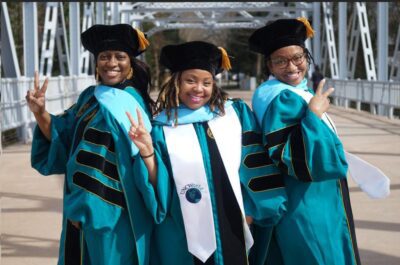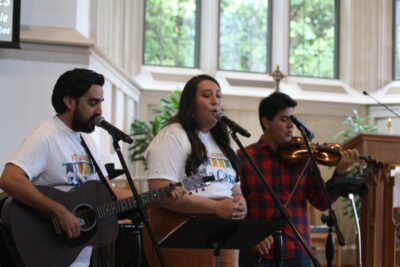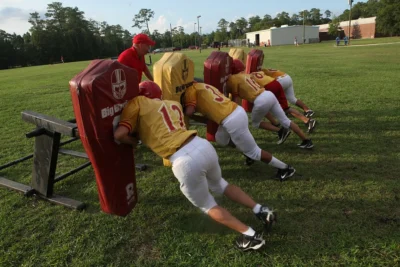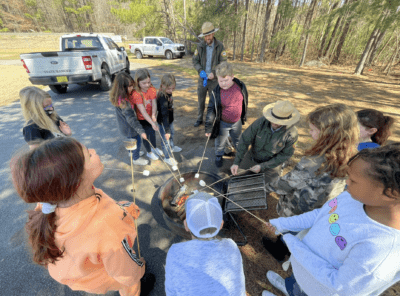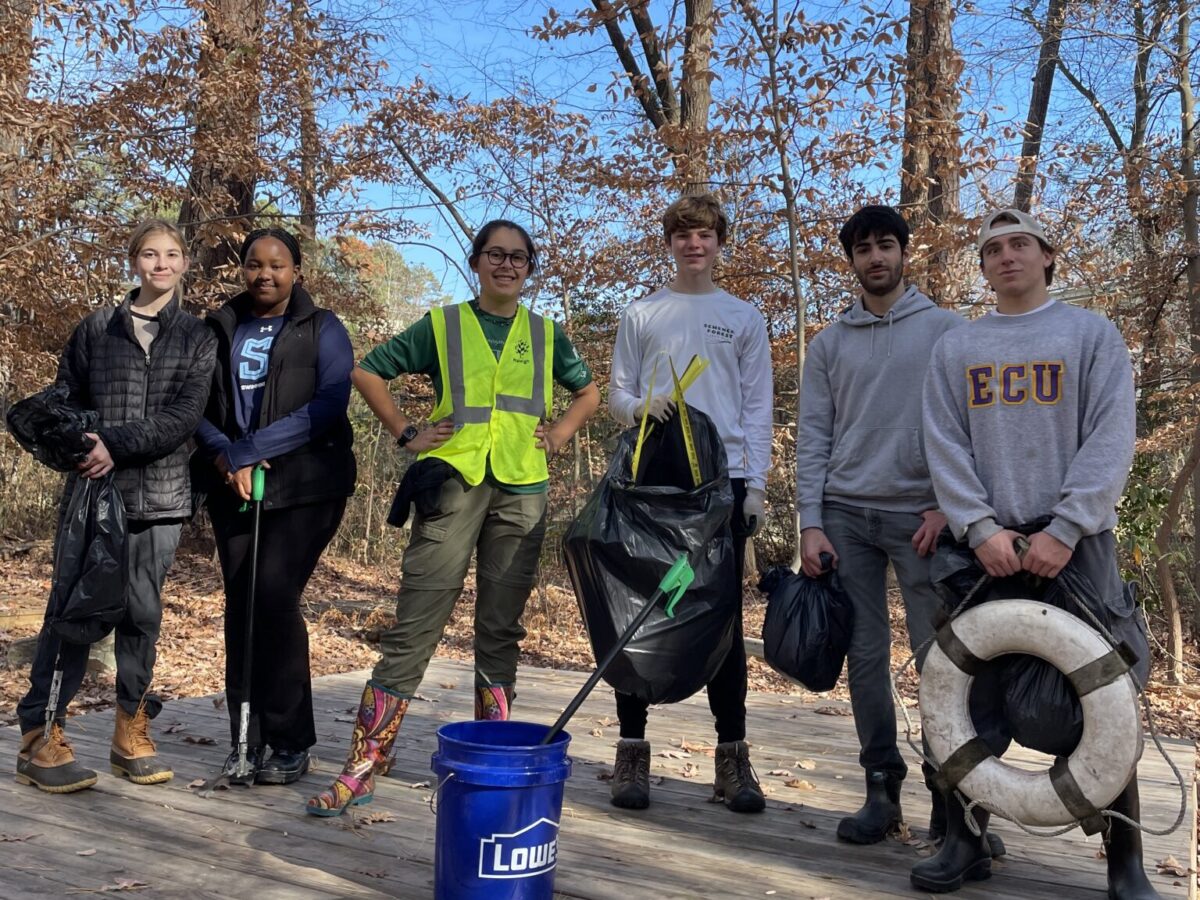

|
|
C.E. Jordan High School junior Aven Schwartz can’t remember a time that she didn’t care about the environment.
Her mom works as Durham County’s sustainability manager, so she grew up learning about the climate and ways to care for it. And when she started high school, she joined a student environmental group there to try to make a difference.
Then, last year, she heard about an opportunity to advocate for climate care from a faith perspective. Despite initially being a bit confused, Schwartz jumped right in.
“I care a lot about my religion, and also about the environment — so it seemed like a really good way that merge those two passions,” said Schwartz, who is Jewish and attends Beth El Synagogue in Durham. “I think often religions, especially right now, are thought of as leading to violence and harm. And I think that while sometimes that is true, religion also can really teach us how to be better people, especially in an environmental lens.”
Today, Schwartz is the co-president of the Youth Leaders Initiative (YLI), a faith advocacy group sponsored by Interfaith Creation Care of the Triangle (ICCT) and N.C. Interfaith Power & Light. The youth-led group aims to connect high school youth, along with their adult leaders, to climate care initiatives and resources across the Research Triangle and beyond.


Last summer, 22 youth and their adult leaders met at Watts Street Baptist Church in Durham to discuss ideas for climate care — an idea that is meant to frame advocating for the climate in a unifying way, as well as highlight the emphasis on caring for the earth in many religions. This meeting marked a restart for the group, following an extended pause at the start of the pandemic.
After brainstorming, the group decided to advocate by visiting youth groups at local churches and houses of worship to present on climate care. The first of those visits took place in January at Hayes Barton United Methodist Church (UMC) in Raleigh.
Currently, the student group includes Christian, Jewish, and Hindu representation. Eventually, leaders say they hope to also have Muslim representation on the group.
“I think having something in our presentation about different religious emphases on climate care, to educate and show unity, is important,” Schwartz said during a group planning session last fall.
All four of the main group members attend Jordan High School, where they also participate in the school environment group: Schwartz, Co-President Elizabeth Boltz, Nate Goldginsberg, and Caden Smith. UNC-Chapel Hill student Rishi Ranabothu, who previously led the YLI, serves as a student advisor.
“Our generation, we are the future of the climate crisis, and we’re going to be the ones that have to deal with it,” said Boltz, a Christian who is also a member of Epworth UMC’s climate care committee. “And so we want to start now, empowering youth to know that they do play a role and they can make a difference in what’s going on in their communities.”
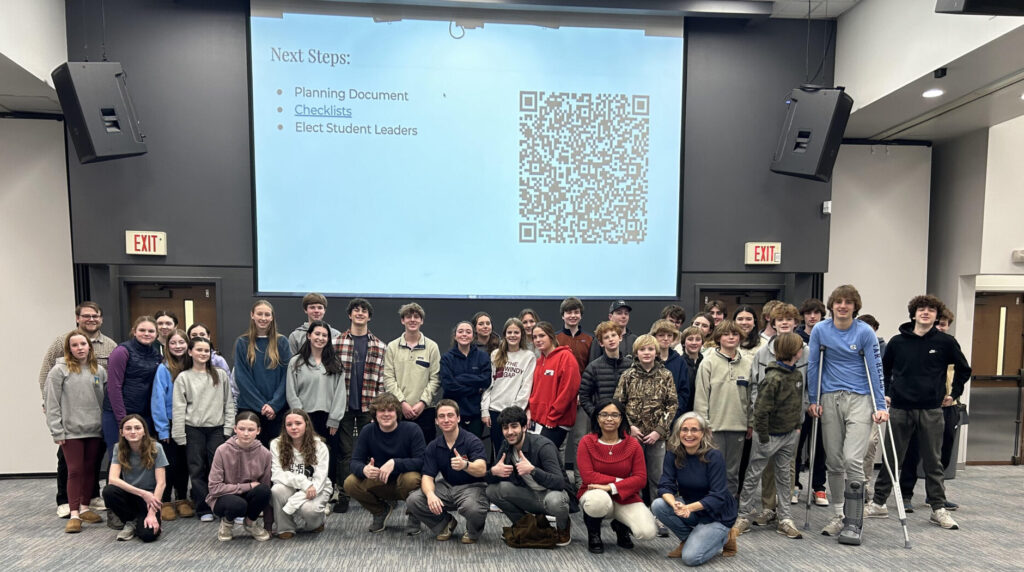

‘We all have a part in caring for this world’
Climate change “is directly contributing to humanitarian emergencies from heatwaves, wildfires, floods, tropical storms and hurricanes and they are increasing in scale, frequency and intensity,” per the World Health Organization. Climate change largely occurs due to global warming, in which the burning of fossil fuels over time increases the amount of CO2 in the atmosphere.
A recent report from the United Nations’ Intergovernmental Panel on Climate Change underscored the need for international action to address such climate impacts.
Still, many religious people are skeptical about climate change, according to a 2022 Pew Research Center Report. At the same time, many religious people say they care about creation.
Most U.S. adults – including a solid majority of Christians and large numbers of people who identify with other religious traditions – consider the Earth sacred and believe God gave humans a duty to care for it, according to a new Pew Research Center survey. But the survey also finds that highly religious Americans (those who say they pray each day, regularly attend religious services and consider religion very important in their lives) are far less likely than other U.S. adults to express concern about warming temperatures around the globe.
2022 Pew Research Center report
While the youth leadership team hopes to educate youth groups on climate change, their primary focus is on engaging religious beliefs about the sanctity of creation in order to inspire action.
Some ideas the team is proposing with youth groups include solar energy, pollinator gardens, and recycling and composting projects, among others.
“The idea is that all of us, no matter what we believe, what faith we follow, we all have a part in caring for this world, God’s creation,” said Liz Becker, youth engagement leader for ICCT. “There’s actually a lot of power in combining all the different faith traditions, so that we can do something together.”
After the group’s January presentation to Hayes Barton United Methodist Church, youth from that church met to further discuss ICCT and engage more youth. Now, there is a Raleigh chapter of the YLI, which plans to keep collaborating with the Durham group.
“Even though this group is new, they learned about ICCT’s mission and collaborated with others to encourage other youth groups to form in the area,” said Carina Chiscano-Doyle, youth leader at Hayes Barton UMC.
In December, members of Hayes Barton’s YLI team — called “Climate Bears” — completed a stream clean up in Raleigh at the House Creek Tributary.
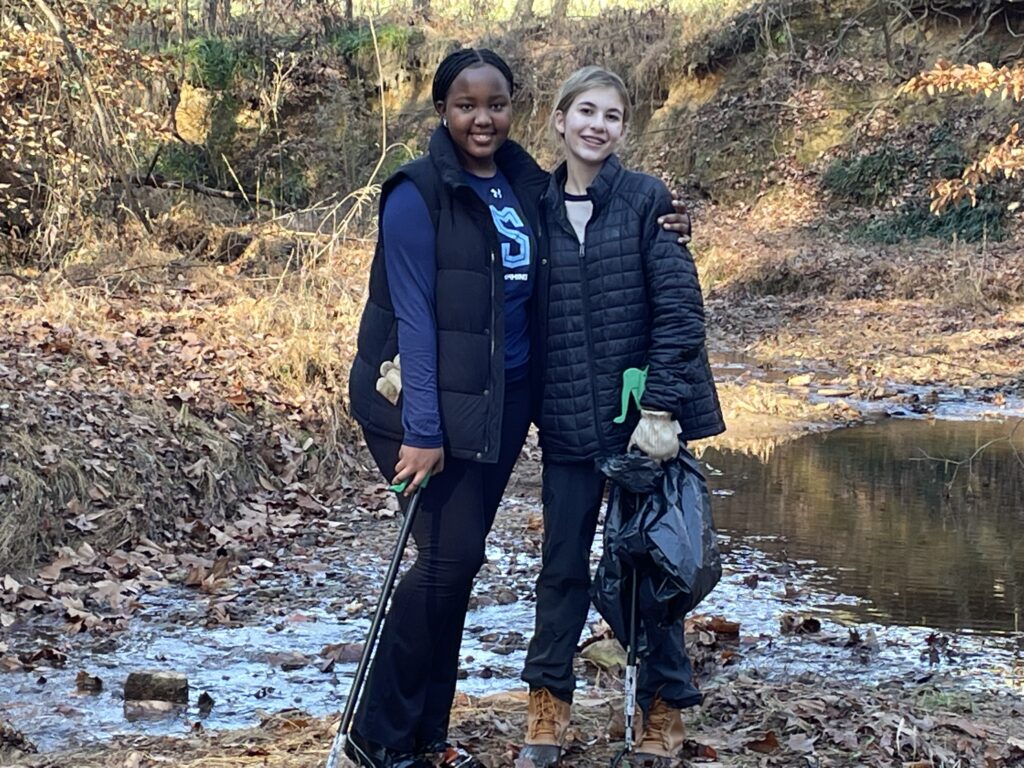

Moving forward, Schwartz said the Durham YLI group wants to help inspire more such projects.
The group also wants to involve more students from different religious backgrounds on the leadership team, empower students to care about the environment, and help churches in the area be more sustainable, Schwartz said.
“When I see other people not doing the simple things they could be doing to make this very real problem that’s gonna affect my generation and my kids’ generations… If I have the ability to educate them and make a difference, I would like to do that,” she said. “I just think that we’re all living on this earth, and we should be doing our part in trying to make sure that future generations can continue to live on it too.”
In March, the group plans to present to Westminster Presbyterian Church in Durham, Becker said. She is also working to coordinate with other churches and faith spaces around the Triangle.
Sometimes, Becker said, she gets frustrated there are not more churches and youth leaders excited about getting involved in climate care. Alongside the youth leaders, she is working to fight apathy and connect with churches through their youth.
“They give me hope,” Becker said of the students. “To hear these youth talk about the climate and the earth and environmental issues — their insight is just pretty impressive. And it definitely gives me hope for the future.”
If you would like to learn more about the group’s work, you can email ICCT Youth Engagement Leader Liz Becker or N.C. Power and Light Eco-Justice Connection Coordinator Ren Martin.
Behind the Story
This story is a part of EdNC’s faith work. If you’d like to share your faith story with us, reach out to hmcclellan@ednc.org.



